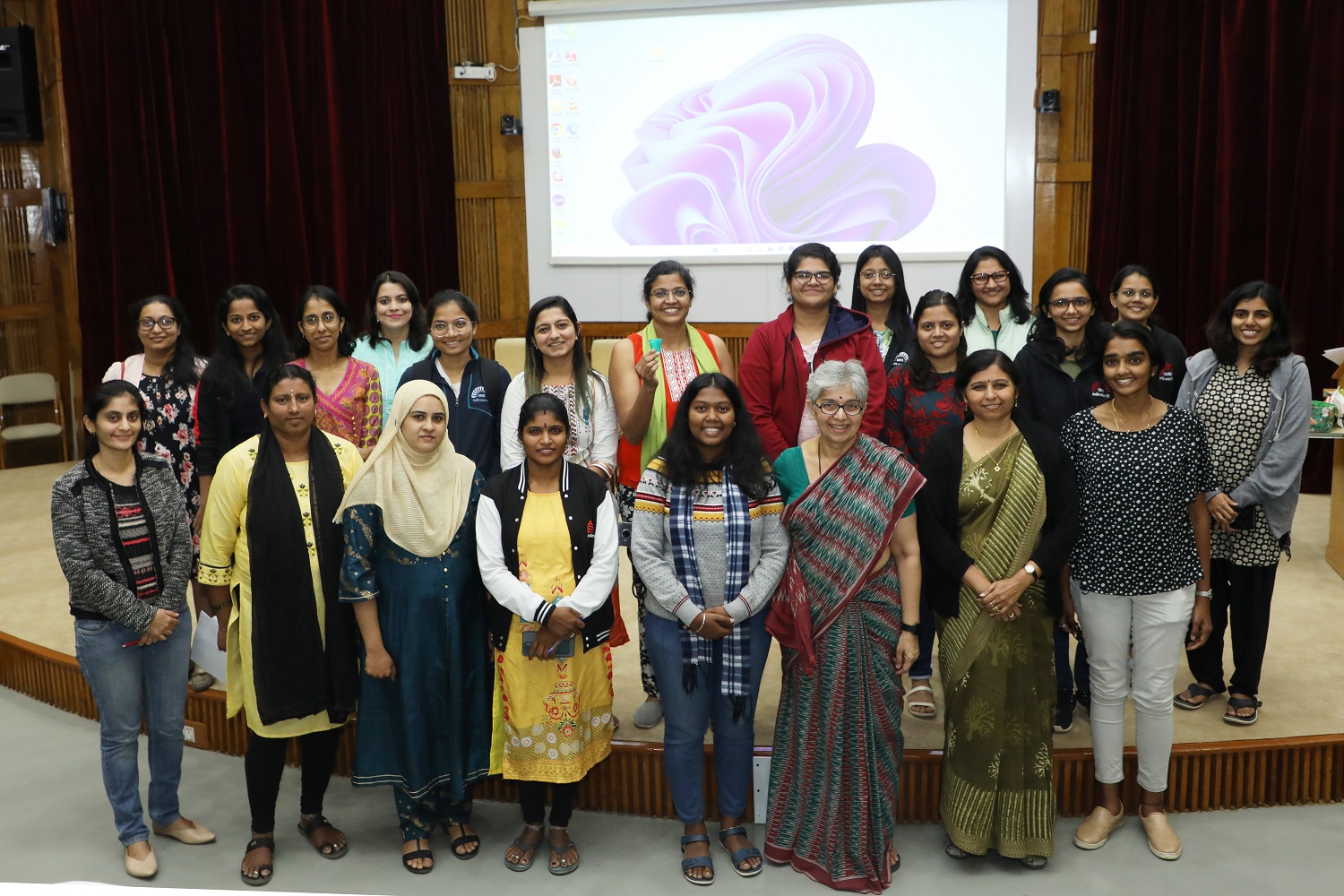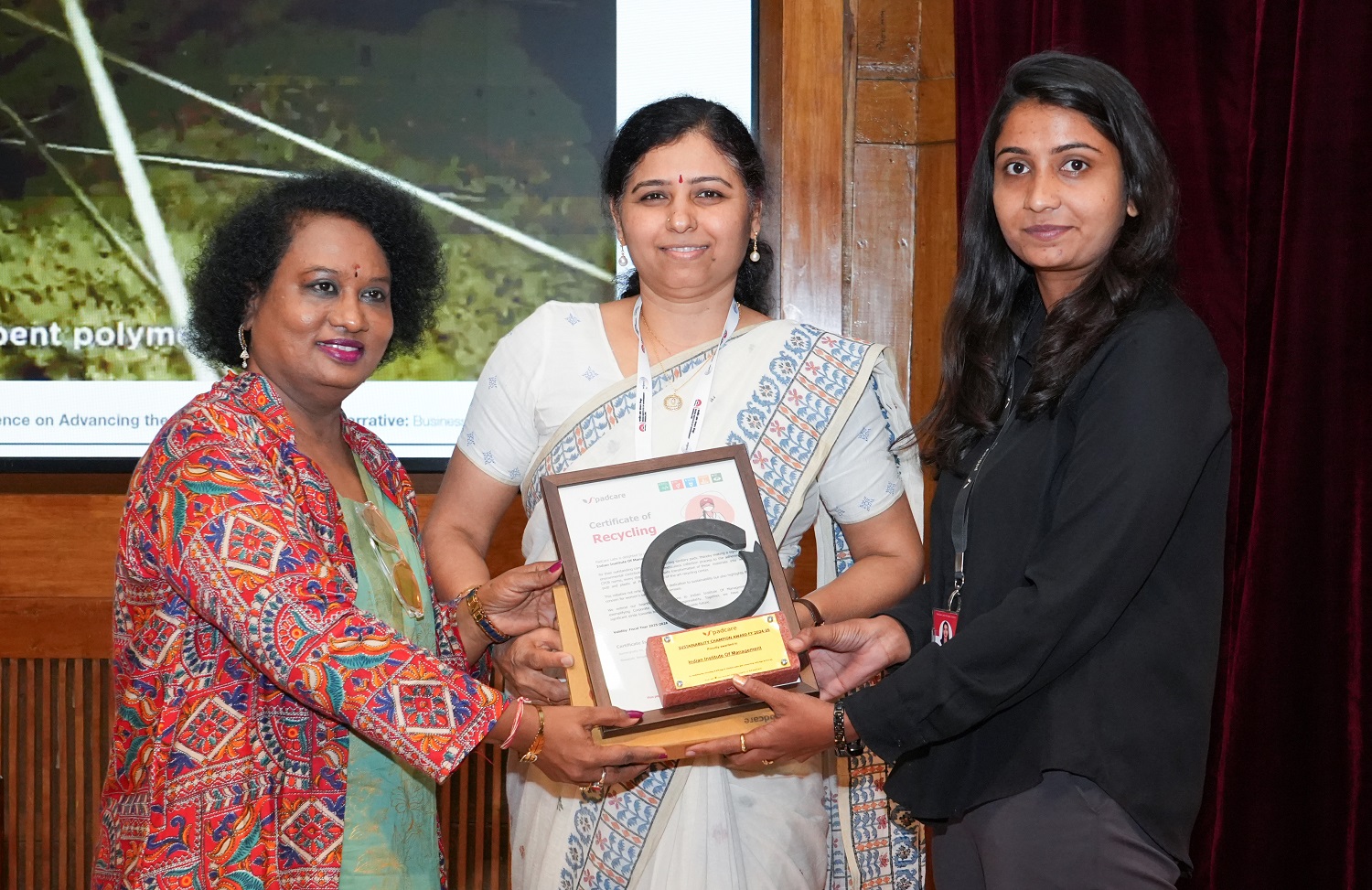Menstrual hygiene isn’t just a health concern; it’s a climate change at IIMB
Menstruation is natural and non-negotiable, but the way it is managed often comes at a high environmental cost. In India, an estimated 12.3 billion disposable sanitary pads are discarded every year, contributing over 113,000 tonnes of plastic waste. Most of this waste ends up in landfills or incinerators. Each pad, made with up to 90% plastic, can take 500 to 800 years to decompose, while their production and disposal generate significant carbon emissions. At IIMB, this challenge was seen not just as a hygiene issue but as an opportunity for meaningful sustainability action.
The IIMB Approach from Awareness to Action
The Green the Red campaign marked a new step by addressing a less visible but equally harmful waste stream, disposable menstrual products.
The Sustainability Task Force, chaired by Professor Haritha Saranga, hosted a session on Women’s Health, ‘Green the Red’. It was led by environmentalist Ms. Smita Kulkarni and gynaecologist Dr. Meenakshi Bharath, and focused on eco-friendly, reusable menstrual cups, which are a safe, long-term alternative to pads and tampons.
The IIMB Sustainability Task Force, chaired by Professor Haritha Saranga, environmentalist Ms. Smita Kulkarni, and gynaecologist Dr. Meenakshi Bharath, along with staff and volunteers.
The benefits were compelling. A single cup can last up to 10 years and replace around 240 disposable pads per user every year. This significantly reduces both cost and carbon footprint.
However, adoption was uneven. While many white-collar participants quickly embraced the idea, blue-collar women workers, including housekeeping and kitchen staff, faced a barrier in the form of the ₹500 upfront cost. Although cups save money over time, this initial expense was difficult for them to manage.
A Model for Scalable, Inclusive Climate Action
This initiative goes beyond reducing waste by integrating menstrual health, environmental protection, and economic inclusion. IIMB introduced a co-payment model in which housekeeping and kitchen staff contributed ₹100, roughly equivalent to their monthly spend on pads. The remaining ₹400 was crowdfunded by women faculty and staff volunteers.
This approach maintained the product’s perceived value while removing financial obstacles. Personal, peer-based follow-ups provided guidance, addressed concerns, and built user confidence, ensuring both comfort and consistent adoption.
The results were significant. Seventy workers switched to menstrual cups, avoiding 8,400 disposable pads each year. This diverted 224 kg of sanitary waste from landfills and prevented 371 kg of CO₂e emissions annually. The adoption rate was 100 per cent, and many participants requested additional cups for family members.

IIMB received the Changemakers Award from PadCare at the International Conference on Sustainability.
Beyond the numbers, the real success was the behavioural shift. Peer-to-peer sharing, supportive messaging, and hands-on follow-ups created trust, making the change both practical and personal.
PadCare at IIMB for Responsible Disposal
Recognising that not everyone is ready to switch to menstrual cups, IIMB also tackled the disposal challenge. In partnership with PadCare, an award-winning startup incubated at N. S. Raghavan Centre for Entrepreneurial Learning (NSRCEL), the institute installed 70 PadCare bins across hostels and academic buildings.
These bins are part of a closed-loop system that sterilises and recycles used sanitary products into reusable materials, avoiding the environmental damage caused by landfill dumping and open incineration. This inclusive, science-backed solution ensures safety, dignity, and sustainability for all menstruators on campus.
So far, 14,700 pads have been processed, which is equivalent to about 590 kg of sanitary waste recycled and 1,260 kg of CO₂e emissions prevented. This also means 4,222 litres of landfill space avoided each year.
In recognition of these efforts, IIMB received the Changemakers Award from PadCare at the International Conference on Sustainability.
The Bigger Picture
With over 350 million menstruating women in India and at least 60 per cent using disposable pads, shifting even 10 per cent of them to menstrual cups could prevent more than 1 million tonnes of CO₂e emissions and divert thousands of tonnes of plastic waste annually.
